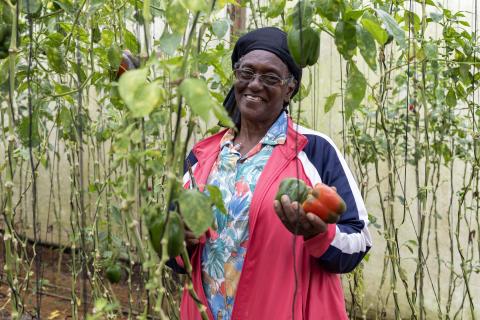UN DESA Policy Brief No. 180: Anticipating the extent and pace of population ageing in SIDS can help build a more sustainable future in these vulnerable states
Over the next decades, most small island developing States (SIDS) are projected to experience a rapid increase in both the share and the number of people aged 65 years or over. In half of the SIDS, the size of the older population will double between now and 2055. All SIDS, even those with youthful populations today, should embrace forward-looking strategies to capitalize on the opportunities that population ageing will bring, while also addressing the context-specific challenges it may pose.
UN DESA Policy Brief No. 161: On the path to an older population: Maximizing the benefits from the demographic dividend in the least developed countries
While many least developed countries (LDCs) are still experiencing persistently high fertility and rapid population growth, they have also begun to experience progressive population ageing. Preparing for population ageing in LDCs will be critical for achieving sustainable development and ensuring that no one is left behind. Maximizing the benefits from the demographic dividend will provide an opportunity for these countries to develop economically before their populations become much older.
UN DESA Policy Brief No. 152: Population, education and sustainable development: interlinkages and select policy implications
The demographic transition, including decreased fertility and child dependency, brings opportunities to boost the human capital of young people and adults alike.
UN DESA Policy Brief No. 150: Economic well-being at older ages: prospects for the future
More must be done to tackle decent work challenges, promote transitions from informal to formal employment, combat long-term unemployment and strengthen mechanisms to set and adjust wages.
UN DESA Policy Brief No. 146: Why safe, orderly and regular migration matters for sustainable development
Respecting, protecting and fulfilling the human rights of all migrants, regardless of their migration status, benefit migrants and countries alike. Addressing the adverse drivers and structural factors that hinder people from building and maintaining sustainable livelihoods in their own countries and communities can reduce the pressure to migrate.
UN DESA Policy Brief No. 143: Caregiving in an ageing world
Rethinking approaches to long-term care will benefit today’s older persons and those who care for them, but also future generations of older persons. Countries should consider a more equitable, person-centred approach to care, operating across governments, businesses, civil society, communities and households to address needs in the provision of both formal and informal care.
 Welcome to the United Nations
Welcome to the United Nations





